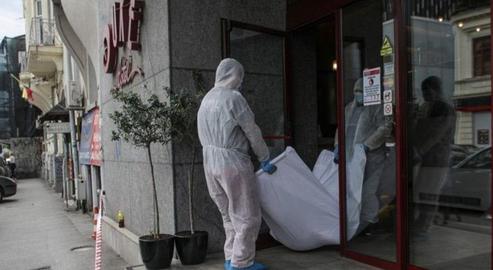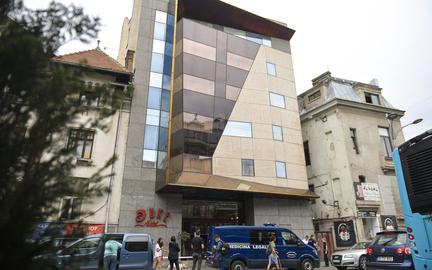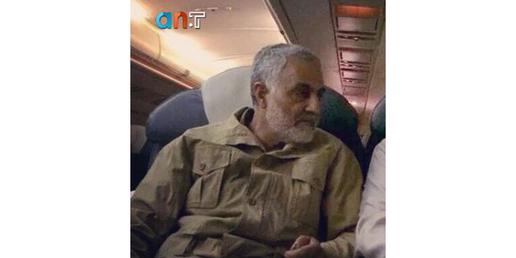Former judge Gholamreza Mansouri was found dead in a Bucharest hotel, where he was waiting for a decision on his extradition from Romania. He reportedly jumped or was thrown from the hotel’s fifth floor. Frank Elbers reports from Bucharest
Police reported that the body of a 52-year old man was found in Hotel Duke yesterday, June 19, at 2:30 pm, following a call from hotel reception to the local emergency services. He was declared dead by the time an ambulance arrived.
The man was a “foreign national under judicial control” accused of “crimes allegedly committed on the territory of another country,” the police said in a statement.
In the early evening a Romanian police spokesperson confirmed that the deceased was Gholamreza Mansouri.
Detectives from the Bucharest homicide department have started an investigation to decide the nature of the deadly incident, trying to find out whether it was a murder, suicide or an accident.
Mansouri, a former judge who had been convicted in Iran on corruption charges, had apparently fled to Germany in early June and subsequently traveled to Romania, where he was detained by authorities after Interpol had issued an arrest warrant for the fugitive. On June 12, Mansouri appeared in court, as Iran had requested his extradition for allegedly accepting a €500,000 bribe. The Bucharest Court of Appeal rejected the prosecutor’s request for Mansouri to remain in police custody and ordered the authorities to evaluate if he could be safely extradited to Iran. Romania has no extradition agreement with Iran.
Not allowed to leave the country and required to report to a local police station regularly, Gholamreza Mansouri had stayed in Hotel Duke in downtown Bucharest’s Piața Romană roundabout, awaiting his next court hearing scheduled for July 10. It was here that his body was found on Friday, June 19, under suspect circumstances.
Initial reports indicated that Mansouri had fallen out of the window of his hotel room. Yet hotel staff confirmed to IranWire that his body was found in the lobby, not outside.
The day after Gholamreza Mansouri’s body was found, the three-star Hotel Duke is almost deserted. Romania went into full lockdown on March 13 and only recently relaxed restrictions on international and local travel. Daily reported coronavirus cases are still high. Hence few business people, let alone tourists, are staying in Bucharest, Romania’s normally buzzing capital of 2 million inhabitants.
The buildings bordering the hotel are partially deserted or under construction, aside from a small pet and electronics shop and a mini supermarket opposite the hotel. Although the hotel is located on the busy Roman Square intersection, this western side of the square is rather deserted, since pedestrians prefer the other side of the north-south corridor through the center of Bucharest, surrounded by a metro station, the imposing classicist Academy of Economic Studies, shops showcasing the latest Paris fashion and the 20-floor Sheraton Bucharest Hotel.
The Hotel Duke is small and was constructed after the fall of Romania’s communist dictator Nicolai Ceaușescu in December 1989, a six-floor business hotel with an atrium. This is where it is alleged Mansouri’s body was found, on the ground floor, not on the outside of the building.
It is easy to approach the hotel reception, step into the elevator and take it to the fifth floor, the floor from which Judge Mansouri jumped, fell or was thrown. Clearly, falling unintentionally seems rather impossible, with the high glass balustrades along the corridors that are bordered on one side by guest rooms and the atrium on the other side. Looking down to the ground floor, there are no signs on the carpeting of the tragedy that occurred yesterday afternoon.
The manager of the hotel was not available for an interview over the weekend and was not available until he is back in the hotel on Monday – typical for Bucharest’s rather laidback atmosphere, where on the weekend only people in retail typically work and, aside from shopping malls, stores are closed on (Orthodox) Sunday.
Within hours of the incident yesterday, Iran’s state media claimed it was a suicide, as IranWire also reported.
According to the Iranian Students News Agency, Iran’s international police chief Hadi Shirzad said Romanian authorities had told Iran that Mansouri “had thrown himself out of the window of his hotel in Bucharest.” Bucharest police also assumed suicide, the local Adevărul daily newspaper reported. On Saturday, June 20, police did not respond to requests for comments on the progress of the investigation.
Despite Romania’s relatively poor ranking in Transparency International’s Corruption Perceptions Index (70 out of 180), its criminal justice system is generally considered fair and just. The former chief prosecutor of the National Anticorruption Directorate (DNA), Laura Codruța Kövesi, was recently appointed as the first EU Public Prosecutor. During her tenure as DNA prosecutor, mayors, judges and MPs were convicted of political corruptiont. The leader of the ruling Social Democratic Party (PSD), Liviu Dragnea, was convicted to a three-and-half year prison sentence in 2019. And in recent years, several human trafficking gangs connected to Syria’s Assad regime have also been arrested and convicted.
Judge Mansouri is the second prominent Iranian citizen of to die in Bucharest since the fall of communism. In November 1994, Mohammed Ali Assadi, an alleged monarchist opposition leader, was assassinated here after having applied for asylum in the United States. At the time, Romanian police claimed Assadi had been involved in “illicit business” and claimed that he was killed by rival Iranian criminals in Romania, who were later convicted. The Iranian Embassy in Bucharest at the time also alleged that Assadi was a criminal and that his murder was not political.
Mansouri is believed to have fled Iran to Germany, but in a video posted on social media, an individual posing as Mansouri's nephew says Mansouri showed up at the Iranian Embassy in Bucharest on June 12 before being arrested by Romanian authorities, as reported by the local Digi24 network.
Iranian Foreign Ministry spokesman Abbas Mousavi said the former judge had recently visited the Iranian Embassy in Bucharest and discussed how to return to Iran, the state-run Islamic Repubic News Agency reported. The embassy is only 700 meters from Hotel Duke; the back of the hotel backs on to the boulevard where the embassy is located.
In a {{ __192194_videocomponent__video component__ }}">video statement posted online last week, Mansouri denied the charges, saying he left Iran for medical treatment and that coronavirus travel restrictions prevented him from returning home.
Gholamreza Mansouri was an influential cleric in Iran, as well as a prosecutor and judge. As a judge, as human rights activists have documented, he sent independent journalists to jail on trumped-up charges, where they were subjected to torture. In 2013, he ordered the simultaneous arrest of 20 journalists in one day.
Reporters Without Borders (RSF) had appealed to prosecutors in Germany on June 11 to arrest Mansouri over alleged human rights abuses, including crimes against humanity, a request RSF repeated on June 13, appealing to Romanian authorities.
History of Suppression
In 2011, Mansouri was prosecutor for the Culture and Media Prosecutor's Office. RSF say he is responsible for the arbitrary detention, persecution and torture of at least 20 Iranian journalists between January and March 2013. One of his victims, journalist Mehdi Mahdavi Azad, who lives in exile today, testified in recent days about the torture he had suffered after his arrest on the order of Judge Mansouri.
“This sudden death deprives victims of a trial,” said Christophe Deloire, RSF’s Secretary General on June 19, following the news of Mansouri’s deat. “It is appalling that the German and Romanian authorities did not immediately arrest him following RSF’s complaint for crimes against humanity, and in accordance with their international obligations. The worst should have been avoided and justice could have been done.”
RSF is calling for a transparent investigation into why and how Mansouri died and added that it did not rule out the possibility of murder.
“Iran would have an incentive to kill him and so would his co-defendants because of what he knew,” Reza Moeini, head of RSF’s Afghanistan and Iran department, told the New York Times.
visit the accountability section
In this section of Iran Wire, you can contact the officials and launch your campaign for various problems



























comments